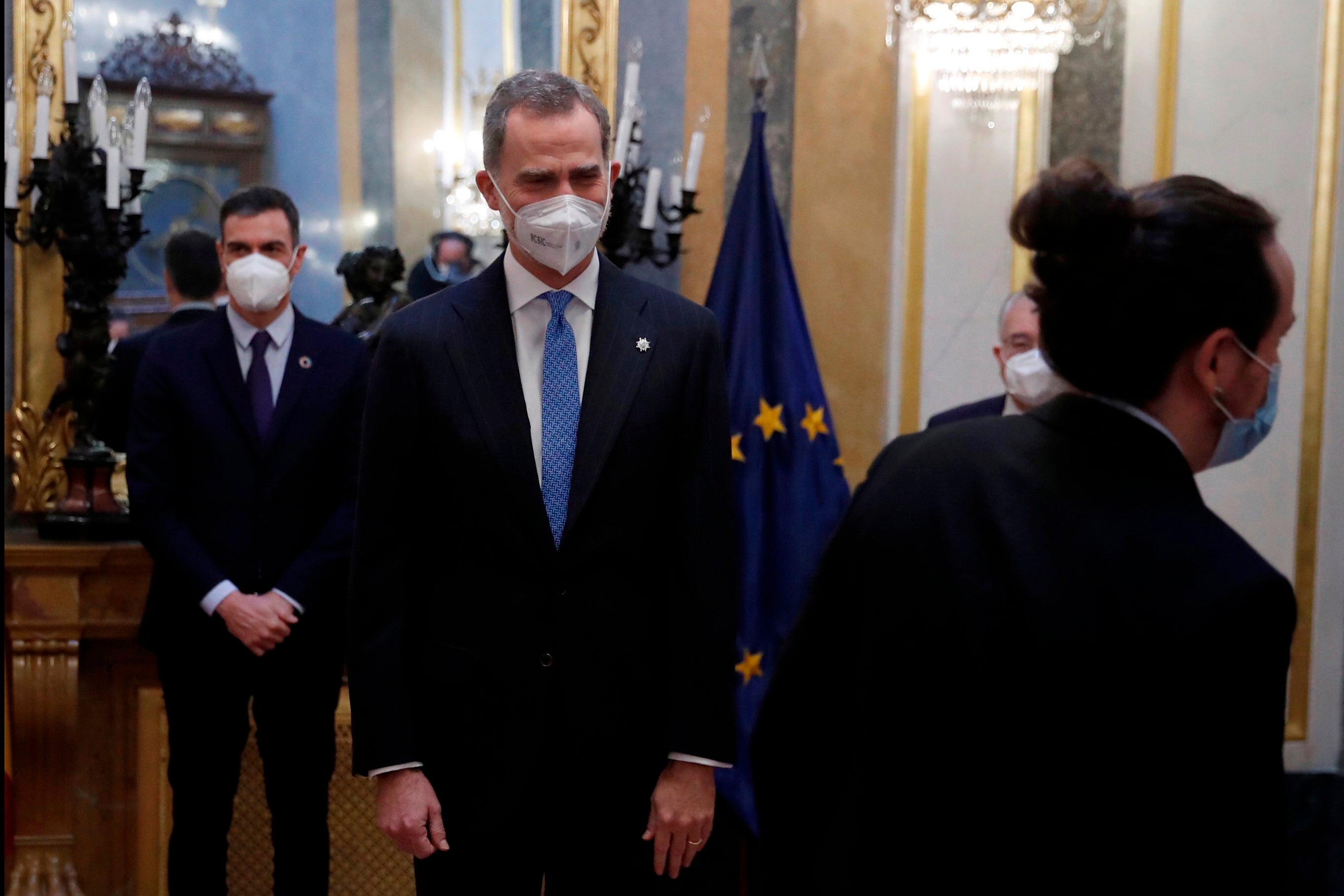Former king absent as Spain marks 40 years since failed coup
King Felipe VI, Spanish lawmakers and others are marking 40 years since a paramilitary coup attempt failed to derail the country’s peaceful transition to democracy

Your support helps us to tell the story
From reproductive rights to climate change to Big Tech, The Independent is on the ground when the story is developing. Whether it's investigating the financials of Elon Musk's pro-Trump PAC or producing our latest documentary, 'The A Word', which shines a light on the American women fighting for reproductive rights, we know how important it is to parse out the facts from the messaging.
At such a critical moment in US history, we need reporters on the ground. Your donation allows us to keep sending journalists to speak to both sides of the story.
The Independent is trusted by Americans across the entire political spectrum. And unlike many other quality news outlets, we choose not to lock Americans out of our reporting and analysis with paywalls. We believe quality journalism should be available to everyone, paid for by those who can afford it.
Your support makes all the difference.King Felipe VI, Spanish lawmakers and others are marking 40 years since a paramilitary coup attempt failed to derail the country s peaceful transition to democracy, but the anniversary has been overshadowed by the absence of a former monarch now beset by financial scandals.
King Emeritus Juan Carlos I was not invited to Tuesday’s event at the same parliament building in central Madrid that, back in 1981, was taken at gunpoint by more than 100 civil guards, holding the entire lower house of parliament hostage.
The ceremony, hosted by Speaker Meritxell Batet, was also boycotted by seven of the parliament’s 17 political groups, including Basque and Catalan nationalist parties who are opposing any involvement of the Royal House in the event.
Juan Carlos was originally anointed by dictator Gen. Francisco Franco as his successor at the helm of Spain But historians have concluded that the monarch became instrumental in consolidating Spain's democracy and, in particular, in thwarting the 1981 rebellion led by advocates for a return to Francoism.
The coup was declared a failure when the king appeared on television to support the new democratic government. Before his televised speech, the country had been holding its breath for the 18 hours that the ordeal at the Parliament lasted.
“Millions of Spaniards have that night etched in their memory,” Felipe VI said Tuesday. “Especially the memory of how, out of anguish and concern over what could happen, they felt at ease seeing how freedom and the constitutional order prevailed.”
In the current monarch's first public reference to his father since Juan Carlos moved to Abu Dhabi over half a year ago, Felipe lauded the former king's condemnation of the coup attempt: "His firmness and authority were decisive for the defense and triumph of democracy.”
Beset by a series of scandals and sinking popularity, Juan Carlos abdicated in 2014 and retired from public life in 2019. Last year he moved to the United Arab Emirates just as new revelations of his financial misdoings emerged and official investigations opened in Switzerland and Spain.
The investigations have caused unease in the Socialist-led left-wing coalition government, giving ammunition to those who want the monarchy abolished.